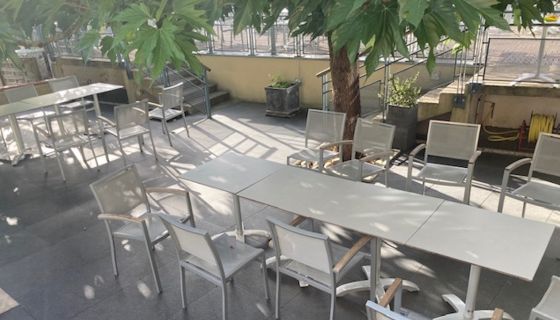The tried and tested maxim ‘you can never buck a trend’ applies equally to those in the restaurant industry.
Saturday nights are, and have always been, the most difficult for restaurateurs to manage as their customers then tend to include many who have travelled from far and wide to reach the restaurant. Another consequence of this is that Saturday evenings will invariably see the highest number of no-shows, those who fail to turn up for their reservation and do not inform the restaurant. These trends are highly likely to persist.
Then there is the fact that Monday will traditionally be the quietest day of the week. Whatever inducement the restaurateur (or in the case of the UK, the government with its recent Eat Out to Help Out scheme) may offer, there is no getting around this economic fact of restaurant life. Some have in the past offered free corkage, converting their restaurants into BYO (bring your own bottle) for the evening, a tactic that might increase the number of diners in the restaurant but does so at a price, as profitable wine sales plummet.
A few other options remain. As a restaurateur, I used to schedule the openings of the changing artists’ exhibitions for a Monday night as they would invariably bring in a large audience who would drink and often stay for supper. But this tactic only highlighted one further fact – that a busy Monday could inevitably be followed by a quieter-than-average Tuesday.
For Hussein Ahmad, an accountant with Viewpoint Partners who specialise in restaurant accounts, the situation is clear. ‘On Mondays in 2019, sales were approximately 10% of the weekly turnover, this year it is down to 5%.’
This situation was confronted a couple of years ago with the reopening of Mayfair’s smart Le Gavroche after it had closed for a major redesign. When he reopened it, chef/proprietor Michel Roux Jr chose not to reopen his restaurant on a Monday, either for lunch or for dinner.
His intention was twofold. Firstly, to allow a fixed day of the week to be available for hire for private lunches and dinners, and secondly not to have the cost of opening and fully staffing with his extensive team on a day when the restaurant would not be full.
When I spoke to Roux last week about this decision, he was quite open as to his reasons. ‘There just do not appear to be enough customers out there on a Monday and those that are, do not want, after perhaps a slightly indulgent Sunday, to drink that much wine in a restaurant. We had the opportunity to close and I have no regrets’, he concluded.
This option of closing on Mondays is now a course being taken by an increasing number of restaurateurs post COVID. In the numerous press releases I have received announcing their reopening, I have noticed that many are choosing to stay closed on the first day of the week. Prominent London restaurateur Jeremy King has reopened Bellanger in Islington but only Wednesday to Sunday. Our son has chosen not to reopen any of his three restaurants on a Monday. This is a trend that, I fear, is likely to remain with us for some time. Even if the consequences are not all bad.
There are several other reasons for this, according to Will Beckett, half of the team leading the Hawksmoor group whose restaurants are in the process of reopening.
The first, he confirmed, was that Mondays were the quietest day of the week, with the exception of Hawksmoor Guildhall in the City of London, which was busy on Mondays but whose surroundings are so quiet on Saturdays and Sundays that it was simply not worth opening at the weekend.
Then there was the image problem. Restaurateurs used to feel that it was important to open on Mondays for two very different reasons. The first was that, even if the restaurant was bringing in just a small amount of gross profit, then it was worth doing. And second, there was the opposite point of view – that if a restaurant was closed for a certain day, or even a part of the day such as Monday lunch, this was a signal to the competition, and to the public, that it was not doing well. Busy restaurants tend to self-perpetuate while restaurants that appear unsuccessful seem only to get quieter.
This attitude has been replaced today by a more calculated one on the part of many restaurateurs. Even the smallest restaurant will need a general manager, waiters, several cooks and kitchen porters in order to open. As wages rise, these costs need to be covered. There seems to be a growing feeling that not opening on a Monday is a less important signal than it was once perceived to be.
There is also one other positive advantage to closing restaurants on Monday: it gives the whole restaurant team a chance to draw breath, to have a collective day off after the busy days and nights of Thursday to Sunday, a fact which cannot be ignored.
Thursday nights have become the busiest night of the week, closely followed by the slightly less busy Friday and Saturday nights. And more and more restaurants are now open for Sunday lunch, with the aim of attracting tables of families rather than the smaller tables that used to be the norm on Mondays. There is a growing, and understandable, disinclination to open on Mondays at all. Perhaps the handful of restaurants that buck this trend will reap the benefit?














